
On 18 November last year at Sage Gateshead, Roger Norrington left the concert stage for the final time. A programme devoted to his favourite composer, 'Joe's the guy' Haydn, brought the curtain down on an illustrious career that had totally changed the way we listen to music. Thanks largely to Norrington's benign radicalism, we now take almost for granted historically accurate orchestral layouts, authentic instruments and playing techniques, flowing tempos, aerated textures and senza vibrato (without vibrato, 'that wobbly stuff').
Looking back 60 years to when it all began with the Schütz Choir and London Baroque Players, I wonder whether Norrington had always seen himself as a musical crusader. 'In fact, I really didn't have any idea where it was going to go,' he smiles. 'I was 28 when I formed the Schütz Choir, and at that point I was thinking in terms of being a busy amateur musician conducting, singing and playing. There was absolutely no thought of my building a career out of it. My formative musical experiences included seeing Furtwängler and Beecham conduct just after the War, and singing under Klemperer. I happily accepted all those slow tempos - indeed, I thought they were really rather wonderful!'
Then he discovered Schütz quite by chance and began researching everything he could lay his hands on. Almost as a bit of a gas,' he recalls, 'in 1962 we put on an all-Schütz concert at St Bartholomew's London, and to my amazement and delight it was very well received by the critics. Over the next ten years we performed a vast quantity of early music, much of which had no central performing tradition associated with it - so we had to invent one!'
Denne historien er fra September 2022-utgaven av BBC Music Magazine.
Start din 7-dagers gratis prøveperiode på Magzter GOLD for å få tilgang til tusenvis av utvalgte premiumhistorier og 9000+ magasiner og aviser.
Allerede abonnent ? Logg på
Denne historien er fra September 2022-utgaven av BBC Music Magazine.
Start din 7-dagers gratis prøveperiode på Magzter GOLD for å få tilgang til tusenvis av utvalgte premiumhistorier og 9000+ magasiner og aviser.
Allerede abonnent? Logg på
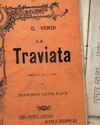
A way with words
Great operas are inextricably linked with their composer but, asks Jessica Duchen, how often do we acknowledge the important role of the librettist?
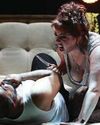
THE MAGNIFICENT SEVEN Pick a theme... and name your seven favourite examples
Conductor Domingo Hindoyan nominates the best musical depictions of anger and frustration
A glittering beacon
Until its destruction in the fire of 1936, the Crystal Palace was one of the world's most exciting music venues, and its legacy still lives on today, writes Tom Service.
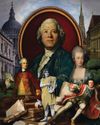
Christoph Willibald Gluck
Paul Riley traces the wandering existence of a cosmopolitan composer who made it his life's work and ambition to rip up opera's rulebook

The Awards are upon us once more!
Time to vote for the best recordings of the last 12 months
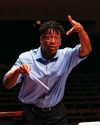
LEADING FROM THE FRONT
From running efficient rehearsals to learning to speak to orchestras with clarity and empathy, an array of exciting courses for conductors has bloomed in recent years, finds Clare Stevens
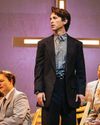
Kindred spirits
As their second opera takes to the stage, composer Gregory Spears and librettist Tracy K Smith talk to Charlotte Smith about their special partnership
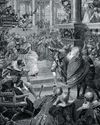
The censors' refusal to play ball drives Verdi to despair
In the early months of 1857, Verdi had Shakespeare on his mind, and specifically King Lear.
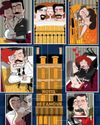
11 Bed-Hopping Composers
Jeremy Pound lifts the covers off those notorious notesmiths who found the thrill of playing away simply too hard to resist

André Rieu Violinist, Conductor
King of the Waltz, Dutch musical impresario André Rieu has taken the world by storm with his Johann Strauss Orchestra.